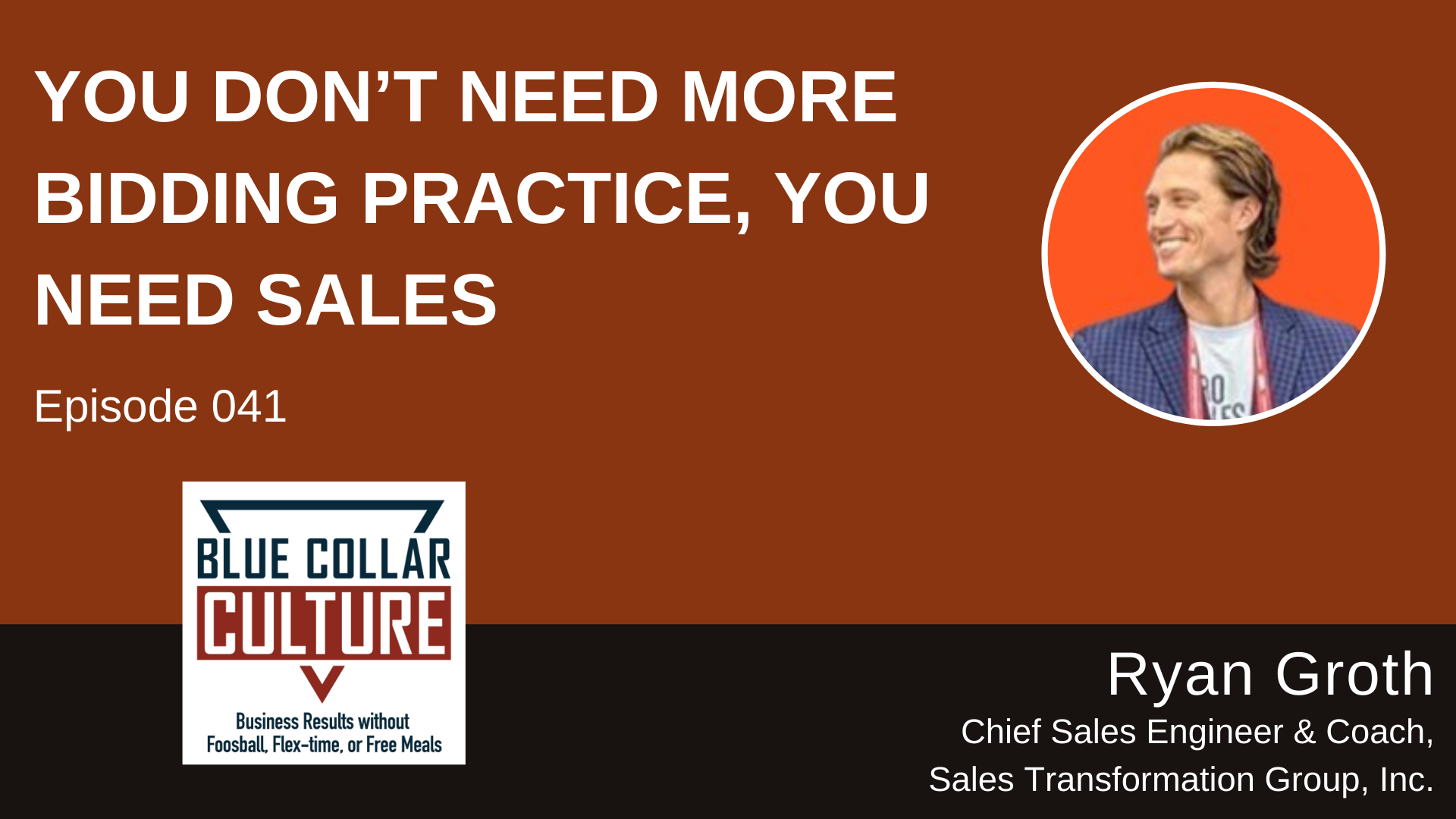Many subcontractors make a fatal mistake, says consultant Ryan Groth of the Sales Transformation Group. They think estimating is selling. But estimating is actually just pricing up the work… while selling is all about creating value.
We explore that concept with Ryan in depth, including the role of relationships in the sales process and the mindset shift needed to create better long-term results. One thing is for certain, being the lowest bid isn’t a good thing, and when you make some key changes, you won’t have to be cheap to get the job.
Tune in for details on that, as well as…
- Why you need to start thinking of general contractors as partners – and how to make them feel the same way
- What to do if you’re stuck at a certain level of revenue, including problem areas to look for
- How to determine which GCs you actually want to work with – yes, you should be selective
- The biggest obstacle to change – and a strategy to overcome it
- And more

